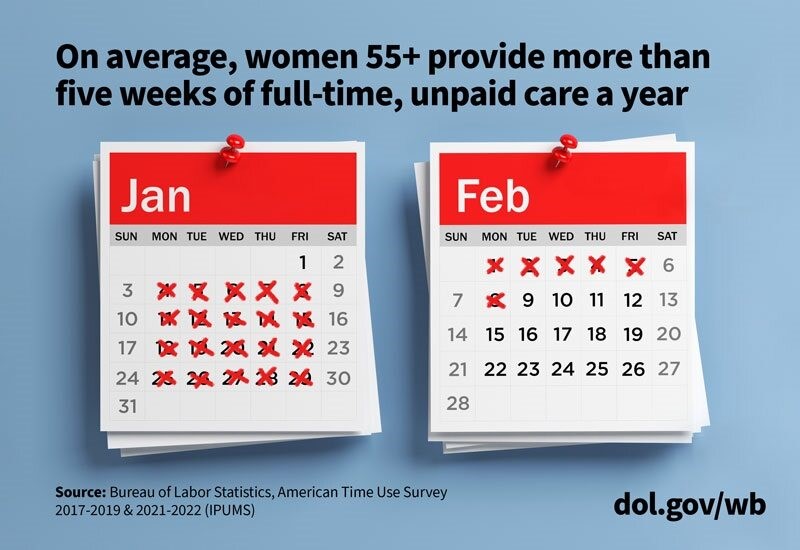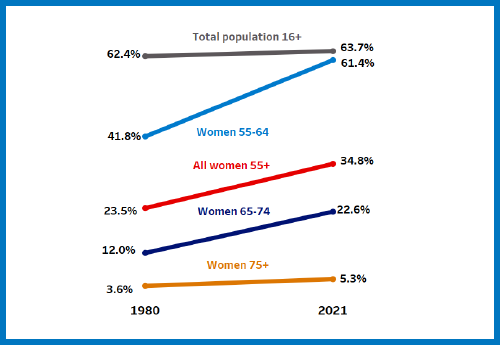Older Women and Unpaid Caregiving: Eldercare, Grandmothers Raising Their Grandkids, and More
Living on Less: Persistent Sex Disparities in Income Levels, Sources for Older Adults
Older women are an essential element of both paid and unpaid caregiving infrastructure in the U.S.

This brief examines the income levels and sources for women aged 65 and older. It also considers differences by age, race/ethnicity and marital status, and discusses policy options for improving the retirement security of older women.
The Rise of Older Women Workers, 1980-2021
Older Women's Wealth
Women ages 55 and older now account for more than one-in-ten U.S. workers, thanks to dramatic changes in their labor force participation over the past 40 years.
There is a gender wealth gap among people ages 50 and older with women reporting lower average wealth compared to similarly aged men. Learn the causes and what can be done about it.
Related from the Women’s Bureau
- Click on our Data and Statistics page to find age-specific analyses by sex, earnings, part-time employment and more
Other Resources
- Older Workers Study (DOL Chief Evaluation Office)
- Number of people 75 and older in the labor force is expected to grow 96.5 percent by 2030
- Age Discrimination (EEOC)
- Retirement Benefits (DOL Employee Benefits Security Administration)
- Senior Community Service Employment Program
- Selected Research & Analysis: Women (Social Security Administration)
- Women and retirement savings (DOL Employee Benefits Security Administration) (PDF)



